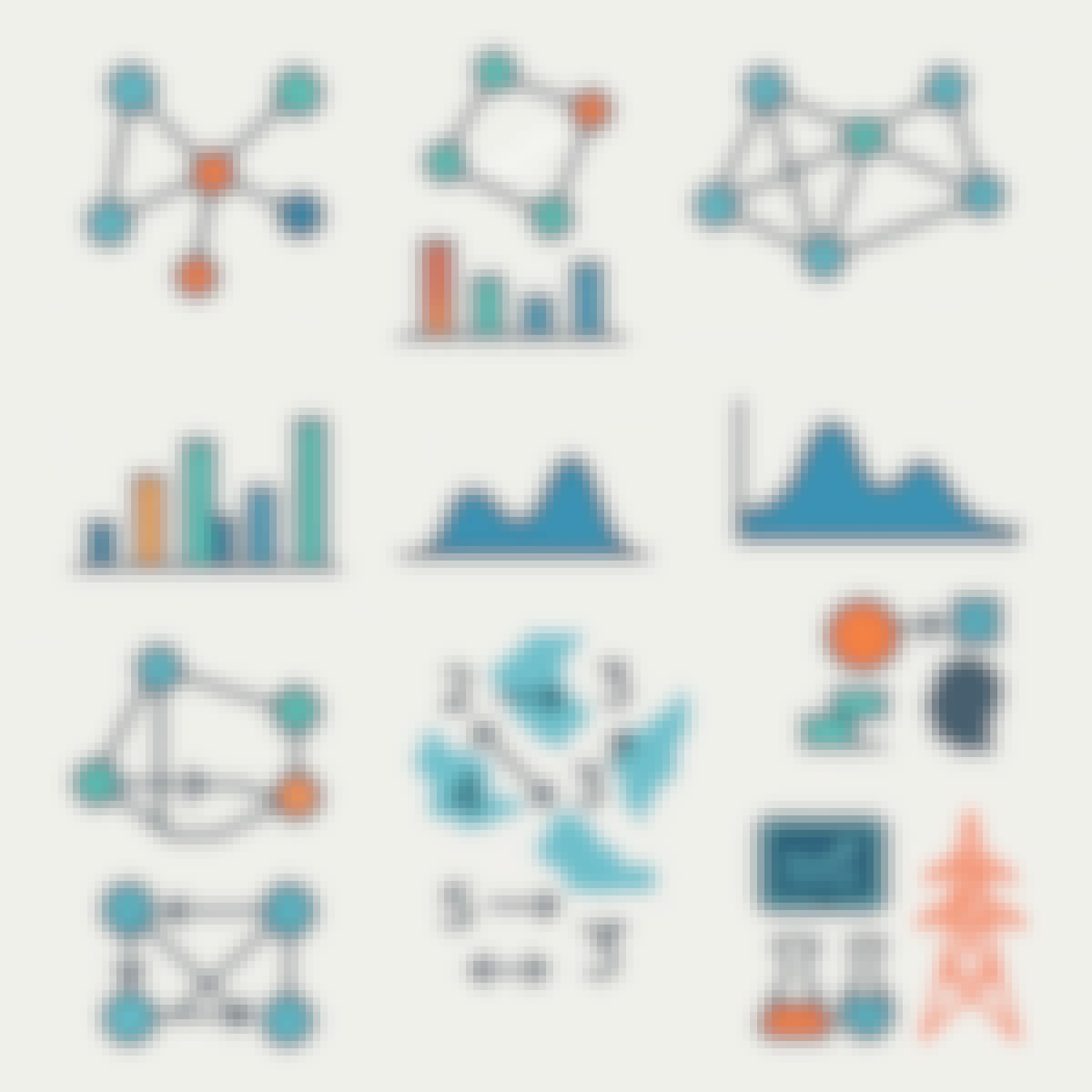- Browse
- Conception Graphique
Results for "conception+graphique"
 Status: Free TrialFree TrialS
Status: Free TrialFree TrialSSkillshare
Skills you'll gain: Creative Design, Creativity, Computer Graphic Techniques, Graphics Software, Peer Review, Digital Design, Design Elements And Principles, Graphical Tools, Storytelling, Technical Drawing, Color Theory
4.6·Rating, 4.6 out of 5 stars9 reviewsBeginner · Specialization · 1 - 3 Months
 Status: Free TrialFree Trial
Status: Free TrialFree TrialSkills you'll gain: Logo Design, Adobe Illustrator, Presentations, Typography, Graphic Design, Animations, Adobe After Effects, Motion Graphics, Adobe Creative Cloud, Branding, Brand Strategy, Marketing Design, System Configuration, Brainstorming, Intellectual Property, Design Software, Knowledge of Apple Hardware, Creative Design, Strategic Thinking, Legal Risk
4.4·Rating, 4.4 out of 5 stars10 reviewsBeginner · Specialization · 3 - 6 Months
 Status: NewNewStatus: Free TrialFree TrialS
Status: NewNewStatus: Free TrialFree TrialSSkillshare
Skills you'll gain: Multimodal Prompts, Prompt Patterns, ChatGPT, Art History
Beginner · Specialization · 1 - 3 Months
 Status: NewNewStatus: Free TrialFree TrialS
Status: NewNewStatus: Free TrialFree TrialSSkillshare
Skills you'll gain: AI Personalization, Business Process
4.1·Rating, 4.1 out of 5 stars16 reviewsBeginner · Specialization · 1 - 3 Months
 Status: NewNewStatus: Free TrialFree TrialC
Status: NewNewStatus: Free TrialFree TrialCCreo Incubator
Skills you'll gain: Go To Market Strategy, Growth Strategies, Value Propositions, Competitive Analysis, Product Development, Market Analysis, Customer Analysis, User Experience, Marketing Strategies, Target Market, Product Marketing, Data-Driven Decision-Making, Market Opportunities, Business Strategy, Marketing Channel, Cost Estimation
Intermediate · Course · 1 - 3 Months
 Status: Free TrialFree TrialV
Status: Free TrialFree TrialVVanderbilt University
Skills you'll gain: Excel Macros, Excel Formulas, Microsoft Excel, Data Visualization, ChatGPT, Spreadsheet Software, AI Enablement, Data Validation, Prototyping, Data Import/Export
4.8·Rating, 4.8 out of 5 stars73 reviewsBeginner · Course · 1 - 4 Weeks
What brings you to Coursera today?
 Status: PreviewPreviewC
Status: PreviewPreviewCCalifornia Institute of the Arts
Skills you'll gain: Typography, Infographics, Computer Graphics, Visualization (Computer Graphics), Design, Graphic Design, Graphic and Visual Design Software, Design Elements And Principles, Color Theory, Image Analysis, Creativity
4.4·Rating, 4.4 out of 5 stars19 reviewsBeginner · Course · 1 - 4 Weeks
 Status: Free TrialFree TrialU
Status: Free TrialFree TrialUUniversity of California San Diego
Skills you'll gain: Graph Theory, Combinatorics, Network Analysis, Data Structures, Visualization (Computer Graphics), Algorithms, Mathematical Theory & Analysis, Theoretical Computer Science, Program Development
4.5·Rating, 4.5 out of 5 stars1.1K reviewsBeginner · Course · 1 - 3 Months
 Status: PreviewPreviewC
Status: PreviewPreviewCCalifornia Institute of the Arts
Skills you'll gain: Typography, Graphic Design, Visual Design, Design Elements And Principles, Creative Design, Layout Design, Photo Editing, Color Theory, Creativity
4.3·Rating, 4.3 out of 5 stars26 reviewsBeginner · Course · 1 - 4 Weeks
 Status: PreviewPreview
Status: PreviewPreviewSkills you'll gain: Infographics, Data Visualization, Target Audience, Data Storytelling, Design Elements And Principles, Technical Communication, Content Creation, Generative AI, Process Mapping, Communication, ChatGPT
4.5·Rating, 4.5 out of 5 stars24 reviewsIntermediate · Course · 1 - 4 Weeks
 Status: NewNewB
Status: NewNewBBirla Institute of Technology & Science, Pilani
Skills you'll gain: Graph Theory, Network Analysis, Social Network Analysis, Combinatorics, Network Model, Mathematical Modeling, Data Structures, Transportation Operations, Image Analysis, Algorithms, Theoretical Computer Science, Artificial Intelligence and Machine Learning (AI/ML), Computational Thinking, Problem Solving
Intermediate · Course · 1 - 3 Months
 Status: Free TrialFree TrialG
Status: Free TrialFree TrialGGoogle Cloud
Skills you'll gain: Responsible AI, Generative AI, AI Security, Large Language Modeling, Google Cloud Platform, Model Deployment, Data Modeling, Artificial Intelligence, Business Solutions, Unstructured Data, Machine Learning, Data Quality
Beginner · Course · 1 - 4 Weeks
In summary, here are 10 of our most popular conception+graphique courses
- Kickstart Your Creativity with Procreate: Skillshare
- Logo Design: From Concept to Client-Approved Work: Skillshare
- Midjourney: Generative AI for Creatives: Skillshare
- ChatGPT for Content Creation and Planning: Skillshare
- Entrepreneuriat : Croissance et Stratégie GTM: Creo Incubator
- ChatGPT + Excel: Master AI-driven Formulas & Visualizations: Vanderbilt University
- Fondamentaux de l’infographie: California Institute of the Arts
- Introduction to Graph Theory: University of California San Diego
- Fundamentos del Diseño Gráfico: California Institute of the Arts
- Creating Infographics with GenAI for Marketing: Coursera










